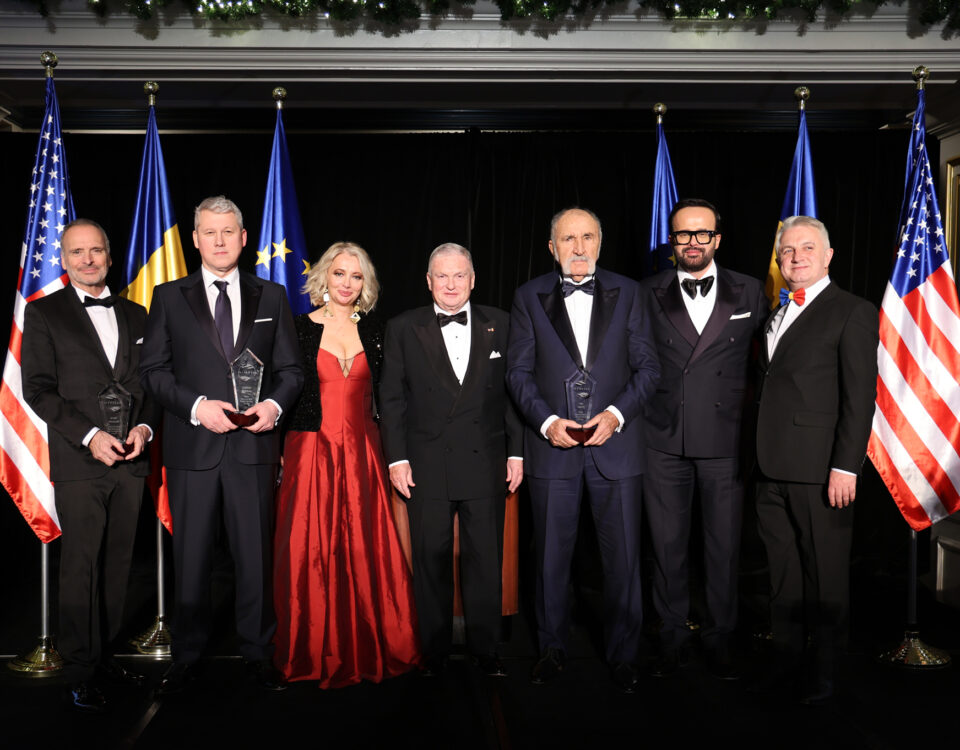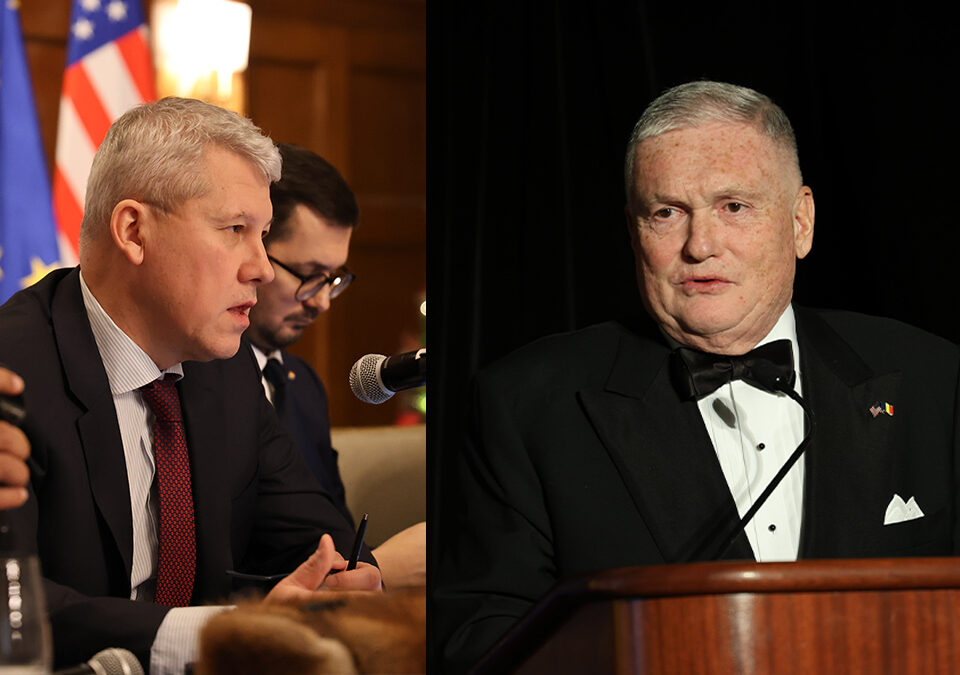Originally published in Cotidianul in Romanian. English translation below.
Corneliu Bjola’s Critique of Romania’s New National Defense Strategy
“The idea of a Romania that ‘plays with everyone and no one’ is dressed up with the word ‘solidarity’ — a band-aid meant to give a veneer of responsibility to what is, in fact, an isolationist position. The President himself spoke of ‘preserving commitments.’ Not developing, not strengthening — preserving. In diplomatic language, this reads poorly — a kind of soft Orbanism. The phrase signals semi-distancing from European partners.”
The national defense strategy proposed by President Nicușor Dan “deepens Romania’s security deficit. It uses hollow concepts, signals the start of distancing from essential partnerships, treats hybrid warfare superficially, and promotes unfounded aspirations. If not substantially revised, it should be rejected by Parliament. I fear, however, that it will pass, thanks to the nationalist undertone, but it will cause problems later. In its current form, it risks doing more harm than good.”
It's written for domestic political use, not to inspire confidence abroad, says Corneliu Bjola, professor of digital diplomacy (Oxford), known for his work on hybrid warfare and Romania’s security vulnerabilities. In a statement for Cotidianul, he argues that the strategy “will flatter nationalist pride, but reality will quickly dismantle it.”
In his view, the strategy lacks a proper diagnosis. It omits China — even though Romania’s largest hybrid attack occurred via Chinese platform TikTok — and overlooks visible Chinese influence channels (including through three former Romanian prime ministers).
Furthermore, says Bjola, Romania’s failure to defend against hybrid threats during last year’s presidential election is not met with any clear instruments or reforms.
The most serious issue, in his opinion, is the introduction of the concept of “solidarity-based independence”:
“It’s a political concession to the nationalist–Ceaușist-inspired sovereignist trend — the idea of Romania ‘playing with everyone and no one.’
Adding the word ‘solidarity’ is cosmetic — a way to give an isolationist stance a responsible tone. Even the president's use of ‘preserving commitments’ shows a lack of ambition. That phrase is read poorly in diplomatic terms. It’s a kind of soft Orbanism. It signals semi-detachment from European partners.”
This will be interpreted as such and will feed mistrust in Romania — precisely when European cohesion matters most. The concept is also detached from reality. Romania is the only country that had to cancel elections due to a Russian hybrid attack, suffers from systemic corruption, and has a military unable to defend its own airspace in Dobrogea. Yet it now claims “full national and state maturity” and calls for strong independence.
“It’s a ridiculous political formula, lacking strategic grounding, and with real potential to backfire.”
What is a national security strategy supposed to do?
“Its role is to map threats, identify solutions, and send geopolitical signals. Sadly, this strategy fails on all three.”
Diagnosis:
“A serious strategy must reflect the evolving geopolitical context. That means not just Russia, but also China and U.S.–Europe dynamics. The current document says something about Russia — slightly more than the Iohannis strategy, but not much. It says nothing about China. Nothing at all about the U.S. or Europe. It’s as if the authors deliberately ignored the two key axes shaping Romania’s security.
Why does diagnosis matter? Because a strategy is a tool of mobilization — it must align state resources and institutions around a coherent vision. Ignoring major topics like China and transatlantic relations turns the whole document into empty rhetoric. That leads to the same mistake as with Russia: being caught off guard, not because of unpredictability, but because of our own ignorance.”
“Let’s not forget: Romania’s largest hybrid attack happened via TikTok, and China is cultivating visible influence channels here — through three former PMs.”
An incomplete diagnosis leads to nonexistent solutions — for example, there is no vision for cooperation with Asia-Pacific democracies.
Russia:
“Treated a bit more seriously, but still vaguely. It’s not defined as an adversary. The document recycles old formulas, with no substance. For example, on hybrid warfare: it’s mentioned more than before, but there’s zero conceptual clarity.”
“That shows Romanian authorities still don’t grasp what hybrid threats are. They play with the language to appear active, but the text reveals they neither understand the phenomenon nor have tools to counter it.”
‘Solidarity-based independence’ — a dangerous concept:
“This is a major regression. Romania needed strategic convergence — real alignment with European and transatlantic partners, where we could compensate for our weaknesses and contribute to shared resilience. Instead, we get a hollow slogan.
It’s a reflection of Romania’s decade-long strategic confusion. A political concession to nationalist–Ceaușist nostalgia. It risks alienating allies and projecting unreliability at a time when unity is essential.”
“Romania acts as if it has full strategic maturity while failing to handle basic defense responsibilities.”
Signaling:
A national strategy sends signals to three audiences: adversaries, partners, and citizens. Bjola argues the current draft fails on all counts:
“It says too little to adversaries, confuses our partners, and is mainly crafted for internal political consumption. It will appeal to nationalist pride, but it won’t survive reality.
When the gap between ambition and capacity becomes obvious, your credibility collapses — both at home and abroad.”
One potentially new element:
The shift toward “citizen security” instead of state security, and the implied need to fight corruption.
“On paper, that sounds good. But Romania’s track record in fighting corruption and reforming the state is dismal. Maybe this time will be different — let’s hope — but any serious progress should follow the model of Moldova.
Bringing intelligence services into the mix is not the solution — at least not without deep reform. Let’s not forget: these services lost the hybrid war with Russia over the last decade — from the pandemic to the 2020 elections. Yet no one at the top was held accountable. This strategy shows no intent to reform the intelligence sector.”
Conclusion:
“This strategy worsens Romania’s security outlook. It uses empty terms, signals distancing from key partners, ignores hybrid threats, and pushes hollow aspirations.
If not substantially revised, Parliament should reject it. But it will likely pass — due to its nationalist flavor. Unfortunately, it will cause real problems down the line.”




